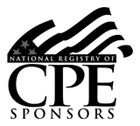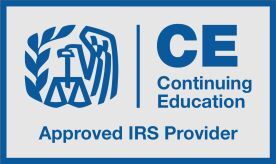

View Details/Register
View Details/Register
View Details/Register
View Details/Register
View Details/Register
View Details/Register
View Details/Register
View Details/Register
View Details/Register
View Details/Register



This course will provide a comprehensive overview of distressed real estate transactions, focusing on their tax implications and strategic considerations. Key topics to be covered include debt restructuring and the tax treatment of foreclosures, sales, and deed-in-lieu transactions.
This webinar will also explore how bankruptcy, solvency/insolvency, and receiverships affect the tax treatment of various distressed real estate transactions. Additionally, our presenter will highlight the application of §1031 exchanges in distressed real estate, assessing their feasibility based on various factors.
-
Understand the tax treatment of distressed real estate transactions such as debt restructuring, foreclosure, sales, and deed-in-lieu transactions
-
Evaluate how bankruptcy, solvency/insolvency, and receiverships influence the tax implications of distressed real estate transactions
-
Explore the applicability of §1031 exchanges in distressed real estate situations based on various legal and financial factors
-
Analyze strategic tax planning considerations to optimize outcomes in distressed real estate scenarios

Matthew E. Rappaport, Esq., LL.M.
Falcon Rappaport & Berkman PLLC
Vice Managing Partner
[email protected]
(516) 558-3377
Matthew E. Rappaport concentrates his practice in Taxation related to Real Estate, Corporations, Partnerships, and Trusts & Estates. He advises clients regarding tax planning and structuring for generational wealth transfer, commercial real estate enterprises, business transactions, and cross-border considerations. He primarily advises real estate professionals, financial professionals, and closely-held business owners. He also functions as a subcontractor for other attorneys, accountants, financial advisors, bankers, and insurance professionals when they encounter matters requiring a threshold level of tax law expertise.
Mr. Rappaport graduated from Washington University in St. Louis in 2007, cum laude, with an undergraduate degree in Political Science. His undergraduate thesis was a cross-sectional analysis of the corporate culture of the privately held financial firm Edward Jones. He received his Juris Doctor and Master of Laws in Taxation from Georgetown University Law Center in 2011. Mr. Rappaport is licensed to practice in New York. He is an active member of the Nassau County Bar Association, the New York State Bar Association, and the American Bar Association. He was the Co-Vice Chair of the Tax Committee of the Nassau County Bar Association from June 2015 until June 2016.
He serves on the Sales, Exchanges, and Basis Committee of the American Bar Association Section of Taxation. Mr. Rappaport has authored articles for the Nassau Lawyer, Thomson Reuters’ Journal of Real Estate Taxation, The Tax Adviser, Bloomberg BNA’s Tax Management – Real Estate Journal, and the Journal of Taxation of Investments. He has spoken at the request of the American Bar Association, the National Conference of CPA Practitioners, the Financial Planning Association, Strafford Publications, the School of Accounting at LIU Post, and a wide variety of law, accounting, and wealth advisory firms. He is a founder of the young professionals networking group Hydra Collective.

Alan Kaufman, Esq., LL.M.
Falcon Rappaport & Berkman PLLC
Of Counsel
[email protected]
(516) 599-0888 x10185
Alan advises clients on a wide range of federal and international tax matters. Prior to joining FRB, he was associated with Sony Corporation for nearly 30 years, lastly as Vice President in the Global Tax Office, where he led strategic and transactional tax planning initiatives with an emphasis on the media and entertainment businesses.
Earlier in his career, he was with the District Counsel of the Internal Revenue Service in the New Orleans and Brooklyn offices, where he litigated tax cases before the U.S. Tax Court. In his corporate and government roles, he has obtained broad experience in many areas of tax planning and controversy, including business integration and restructuring, mergers and acquisitions, divestitures, joint ventures, intercompany transactions, transfer pricing, tax treaty matters (including competent authority negotiations), ruling requests, and audit defense.
- To receive CPE credit, you must register for the webinar before it starts.
- CPE is available to all eligible participants within 24 hours of each webinar.
- To receive CPE for multiple attendees, at least one person must sign up for the webinar. The post-webinar email contains a link to instructions for the proctor letter. Alternatively, you may log in to your account following the webinar and click on the MY ACCOUNT button to find a link to instructions. For paid courses, payment needs to be made for each attendee before credit will be issued.

NASBA Approved
CPAacademy.org (Sponsor Id#: 111889) is registered with the National Association of State Boards of Accountancy (NASBA) as a sponsor of continuing professional education on the National Registry of CPE Sponsors. State boards of accountancy have final authority on the acceptance of individual courses for CPE credit. Complaints regarding registered sponsors may be submitted to the National Registry of CPE Sponsors through its website: www.nasbaregistry.org.
CPAacademy.org 1685 S. Colorado Blvd, Suite #205, Denver, CO 80222

EA Approved
CPAacademy.org (Sponsor Id#: HURS9) has entered into an agreement with the Internal Revenue Service, to meet the requirements of 31 Code of Federal Regulations, section 10.6(g), covering maintenance of attendance records, retention of program outlines, qualifications of instructors, and length of class hours. This agreement does not constitute an endorsement by the IRS as to the quality of the program or its contribution to the professional competence of the enrolled individual. Credit earned by attendees with a PTIN will be reported directly to the IRS as required of all providers. To ensure your CPE hours are reported, update your profile in My Account to include your PTIN number. Please note: IRS CE is only mandatory for EAs and ERPAs. For all other tax return preparers, CE is voluntary.
CPAacademy.org 1685 S. Colorado Blvd, Suite #205, Denver, CO 80222

